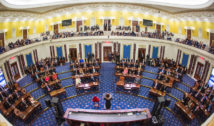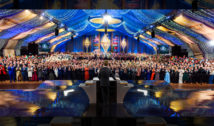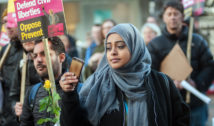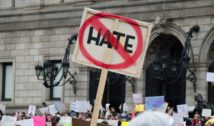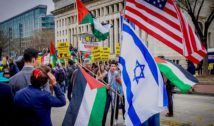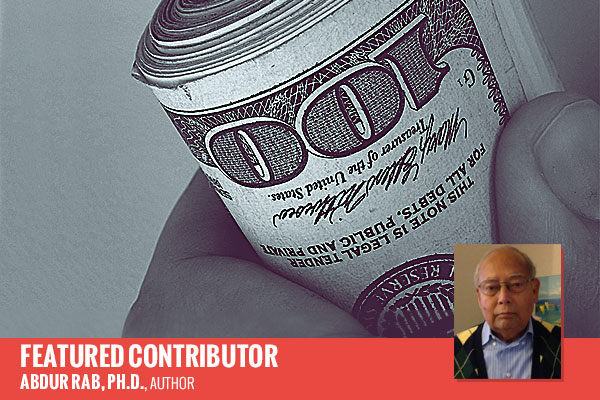
A Muslim Guide to Spending as Prescribed by the Quran Part 1
- By Abdur Rab --
- 14 Jul 2014 --

It is through spending, seeking no reward except God’s countenance, that one grows in purification and receives contentment – The Quran, 92:18-20
[Taken, with a slight adaptation, from a chapter in the author’s book Rediscovering Genuine Islam: The Case for a Quran-Only Understanding, 2014.]
“It is in sharing the most, not in gathering the most, that the most is received.” – Neale Donald Walsch
Introduction
No topic seems to have received so much attention in the Quran as socioeconomic welfare spending, which the Quran labels as “spending in God’s way.” It is replete with verses that underscore the merit of such spending (92:18; 9:103; 107:1-7; 2:261; 30:39). God curses those worshippers who care not to help those who are in need (107:4-7). Through these and other verses (See also 90:12-116), the Quran places service to humanity at the top of the ladder of virtue, and equates serving humanity with serving God.
However, such spending has been identified in traditional Islam with a very narrowly defined concept of zakat (or zakah) – a term that really means purification. It’s not clear whether this term is derived from a verse in the Quran that says that spending in God’s way leads to an increase in one’s zakat or purification (92:18). Note, however, that although the Quran mentions zakat many times along with salat, nowhere it specifically uses the term to explain its meaning or to detail how much one should spend and where it should go, as it does with general spending (infaq) in God’s way and sadaqa, which means almsgiving.
The depth and breadth of what is detailed in the Quran as spending in God’s way in fact go way beyond the narrow confines of the traditionally understood zakat system. The Quran’s overall orientation is a stress on socioeconomic justice and egalitarianism, where the poor and disadvantaged segments in society are freed from poverty and deprivation and empowered to live healthy, productive lives. Some of the salient features such spending should embrace are as follows:
• The ultimate purpose of such spending should be to make the poor and disadvantaged people in society stand on their own feet – not to perpetuate a beggars’ class in society, which is really a social nuisance, degrading to humanity.
• Such spending, according to the Quran, well exceeds the 2½ percent of assets (excluding one’s homestead) generally understood by Muslims as the zakat amount. And it should come out of both earnings (income) and wealth.
• The scope of such spending covers not only welfare payments for the indigent and the needy and poor relatives but also those for other causes, lumped up as God’s cause, which covers a whole host of things, as would be mentioned below.
• Finally, the state has an important role to play in such programs besides what individuals can and should do at their own levels on top of taxes they pay to the government to cover welfare needs at the state level.
Rationale for Spending in God’s Way
Some of the reasons why those in society who can afford to engage in such spending should do so are as follows:
• Such spending forms an integral part of our service to humanity that could be viewed as equivalent to our very service to God;
• It is through such spending that we bring about greater social and economic egalitarianism in society;
• Such spending is self-purifying, and it brings real contentment and happiness to the giver; and
• Such spending also makes economic sense.
The Quran emphatically declares, “Never shall ye attain piety until ye give out of what ye love (3:92).” It characterizes such spending as the gateway to ascent:
90:12-16 What will convey unto thee what the Ascent is!
(It is) to set a slave free,
And to feed the hungry in a day of hunger,
An orphan near of kin,
Or a poor person in misery.
There is no merit in the amassing of wealth, as it has no value as a measure of virtuousness of a human being before God (34:37). The Quran warns that those who amass or hoard wealth and are stingy in humanitarian spending would eventually find that wealth too burdensome for them on the Day of Resurrection (3:180).
Islam promotes neither pure capitalism nor socialism. It promotes free-market competitive capitalism with socialistic overtones. The Quran sanctifies private property ownership (2:188; 4:2, 10, 29, 58; 17:34; 26:183) and respects individual freedom, enterprise, and businesses to mutual benefit (4:29). But the individual owners are only caretakers of their earned or inherited wealth. They are entitled to use such wealth subject to the understanding that everything really belongs to, or is for, God (2:284; 3:109) and should be used for only godly purposes, i.e., to serve only God (12:40). This fundamental philosophy underpins the safety-net system for the poor and needy people and spending for other welfare needs of society. The Quran urges such spending to rid society of poverty and deprivation and to guarantee overall social welfare.
There is also a deep philosophical reason for humanitarian spending on the part of the rich people in society. The Quran directs us to be fully alive to the need for ensuring distributive justice in society. It strongly urged the Prophet Muhammad, who was an orphan and a needy person, not to be oblivious of the needs of the orphans and the needy (93:6-10). The Quran envisions for us an egalitarian society. A society is neither egalitarian nor healthy for its all-round development when some people swim in wealth while others are ill fed, ill clad, and ill housed, and when they cannot provide for their food, shelter, health, and education even at a basic level. Spending on the helpless and disadvantaged groups in society helps overall moral and spiritual uplifting of all humankind, which is the only way we elevate all men and women, and help develop their latent potentials and bring about all round progress in society.
Man can hardly live alone in happiness without sharing his earnings and possessions with others in society. Spending for a benevolent cause, i.e., in God’s way, is a way of purifying oneself (92:17-21). God-loving people spend for the poor, the orphans, and the captives out of love for, and pleasure of, God – which is essentially their own pleasure, and they seek or expect no reward or thanks in return (76:8-9; 92:20-21). Zakat means “purification” and is traditionally identified with charitable giving. But it could mean sharing a portion of one’s blessings with others for free, i.e., pro bono – where the giving is without expectation of any return (76:8-9; 92:20-21). Blessings could be in any form such as friendship, professional skill, knowledge, manual work, beautiful voice, and real or monetary resources. However, both zakat and sadaqa could be interpreted to mean the same thing for all practical purposes – sharing of one’s resources (or spending) – material or non-material – for God’s cause.
92:17-21 As for the righteous, he will be spared it (the blazing Fire), one who giveth from his riches for self-purification. He seeketh nothing in return, but seeketh (only) the pleasure of his Lord, the Most High. It is he who verily will find contentment.
It is only the wrong-headed people who dispute the case for spending for others:
36:47 When they are told: Spend of what God hath provided you, those who disbelieve say to those who believe: “Shall we feed those whom God could feed, if He so willed?” Ye are naught else than in clear error.
The economic rationale for such spending is no less compelling. A high concentration of income and wealth in fewer hands is counter-productive. Such a concentration adversely affects the development of human resources, and holds down effective demand, and holds back economic expansion. High inequality of income and wealth destroys social cohesion, peace, and harmony, and breeds bitter feelings on the part of the poor and deprived people, and creates scope for social crimes, immorality, and frustration. In a recent survey of studies on the relationship between poverty, growth, and inequality done by the World Bank, major conclusions drawn include the following:
• While economic growth itself is fundamental for poverty reduction, growth accompanied by progressive distributional change is better than growth alone.
• High initial inequality of income is a brake on poverty reduction.
• While poverty itself is also likely to be a barrier for poverty reduction, asset (wealth) inequality seems to predict lower future growth rates.
These conclusions appear to be equally valid for both developing and developed economies. In a 2012 article, Jonathan Rauch challenges a long-standing consensus that “inequality is the price America pays for a dynamic, efficient economy,” and concludes that growing inequality is seriously hurting the U.S. economy.







